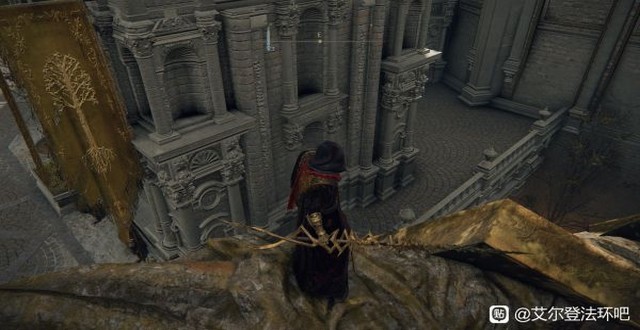【DNF各等级的自动手枪和手弩(弹药用)谁帮列出来 并推荐一下】
William Wordsworth (1770-1850)
British poet, who spent his life in the Lake District of Northern England. William Wordsworth started with Samuel Taylor Coleridge the English Romantic movement with their collection LYRICAL BALLADS in 1798. When many poets still wrote about ancient heroes in grandiloquent style, Wordsworth focused on the nature, children, the poor, common people, and used ordinary words to express his personal feelings. His definition of poetry as "the spontaneous overflow of powerful feelings arising from "emotion recollected in tranquillity" was shared by a number of his followers.
"Poetry is the breath and finer spirit of all knowledge; it is the impassioned expression which is in the countenance of all Science." (from Lyrical Ballads, 2nd ed., 1800)
William Wordsworth was born in Cockermouth, Cumberland, in the Lake District. His father was John Wordsworth, Sir James Lowther's attorney - the fifth Baronet Lowther was the most feared and hated aristocrat in all of Cumberland and Westmoreland, "an Intolerable Tyrant over his Tenants and Dependents". However, the magnificent landscape deeply affected Wordsworth's imagination and gave him a love of nature. He lost his mother when he was eight and five years later his father. The domestic problems separated Wordsworth from his beloved and neurotic sister Dorothy, who was a very important person in his life. Dorothy had especially fresh contact to nature from a very early age. Her thoughts and impression were a valuable source of inspiration for her brother, who also introduced himself as Nature's child. The first time she saw the sea, she burst into tears, "indicating the sensibility for which she was so remarkable," Wordsworth remembered.
With the help of his two uncles, Wordsworth entered a local school and continued his studies at Cambridge University. As a writer Wordsworth made his debut in 1787, when he published a sonnet in The European Magazine. In that same year he entered St. John's College, Cambridge, from where he took his B.A. in 1791. During a summer vacation in 1790, Wordsworth went on a walking tour through revolutionary France. He also traveled in Switzerland.
On his second journey in France, Wordsworth had an affair with a French girl, Annette Vallon, a daughter of a barber-surgeon, by whom he had a illegitimate daughter Anne Caroline. The affair was basis of the poem 'Vaudracour and Julia', but otherwise Wordsworth did his best to hide the affair from posterity. After his journeys, Wordsworth spent several aimless and unhappy years. In 1795 he met Coleridge. Wordsworth's financial situation became better in 1795 when he received a legacy and was able to settle at Racedown, Dorset, with his sister Dorothy.
Encouraged by Coleridge and stimulated by the close contact with nature, Wordsworth composed his first masterwork, Lyrical Ballads, which opened with Coleridge's 'Ancient Mariner.' About 1798 he started to write a large and philosophical autobiographical poem, completed in 1805, and published posthumously in 1850 under the title THE PRELUDE. The long work described the poet's love of nature and his own place in the world order.
"Dust as we are, the immortal spirit grows
Like harmony in music; there is a dark
Inscrutable workmanship that reconciles
Discordant elements, makes them cling toger
In one society."
The winter 1798-99 Wordsworth spent with his sister and Coleridge in Germany. There he wrote several works, including the enigmatic 'Lucy' poems. After return he moved Dove Cottage, Grasmere. In 1802 married Mary Hutchinson. They cared for Wordsworth's sister Dorothy for the last 20 years of life - she had lost her mind as a result of physical ailments. Almost all Dorothy's memory was destroyed, she sat by the fire, and occasionally recited her brother's verses.
Wordsworth's second collection, POEMS, IN TWO VOLUMES, appeared in 1807. In the same year Thomas de Quincey met first time Wordsworth and wrote about him and other Lake Poets in several essays. He described revealingly Wordsworth's mean appearance and Dorothy's lack of sex appeal. The frankness of his text, although published in the 1830s and 1840s, was considered indiscreet by later Victorian critics. "... Wordsworth was of a good height (five feet ten), and not a slender man; on the contrary, by the side of Southey, his limbs looked thick, almost in a disproportionate degree. But the total effect of Wordsworth's person was always worst in a state of motion. Meantime, his face - that was one which would have made amends for greater defects of figure." (from Reminiscenes of the English Lake Poets by Thomas de Quincey, 1907)
Wordsworth's path-breaking works were produced between 1797 and 1808. In a letter to Lady Beaumont he said: "Every great and original writer, in proportion as he is great and original, must himself create the taste by which he is to be relished." His poems written during middle and late years have not gained similar critical approval. Wordsworth's Grasmere period ended in 1813 when he moved to Rydal Mount, Ambleside, where he spent the rest of his life. His daughter Catherine and beloved son Thomas had died and his friendship with Coleridge, suffering from addiction, was breaking apart. Coleridge did not visit Grasmere, although he had made a trip to the Lake District.
Wordsworth was appointed official distributor of stamps for Westmoreland. From the age of 50 his creative began to decline, but tree female assistants took care of him, and filled his life with admiration. Wordsworth abandoned his radical faith and became a patriotic, conservative public man. In 1843 he succeeded Robert Southgey (1774-1843) as England's poet laureate. Wordsworth died on April 23, 1850. The second generation of Romantics, Byron and Shelley, considered him 'dull.' Later the philosopher Bertrand Russell summed up the poet's career: "In his youth Wordsworth sympathized with the French Revolution, went to France, wrote good poetry, and had a natural daughter. At this period he was called a 'bad' man. Then he became 'good,' abandoned his daughter, adopted correct principles, and wrote bad poetry."
Dorothy Wordsworth (1771-1855) published travel books and journals, such as GRASMERE JOURNALS 1800-03 and THE ALFOXDEN JOURNAL 1798, in which she described the friendship of Wordsworth and Coleridge. After a serious illness in 1829, she was obliged to lead the life of an invalid, which deeply affected her imaginative and mental powers.
For further reading: The Hidden Wordsworth by Kenn R. Johnston (2001); 1798: The Year of the Lyrical Ballads, ed. by Richard Cronin (1998); The Revolutionary 'I' by Ashton Nichols (1998); Disowned by Memory by David Bromwich (1998); The Hidden Wordsworth by Kenn R. Johnston (1998); William Wordsworth: A Biography by Hunter Davies (paperback in 1997); William Wordsworth by John Williams (1996); Becoming Wordsworthian by Elisab A. Fray (1995); A Literary Guide to the Lake District by G. Lindop (1993); Wordsworth and the Beginnings of Modern Poetry by R.M. Rehder (1981); Wordsworth's Second Nature by J.K. Chandler (1984); A Wordsworth Companion by F.B. Pinion (1984); Life by M. Moorman (1957/1965); Wordsworth and the Human Heart by J. Beer (1978); Reminiscences of the English Lake Poets by Thomas de Quincey (1907) - See also: WALTER DE LA MARE - Museums: Dove Cottage, Town End, Grasmere - former home of William and Mary Wordsworth, closed mid-January to mid-February; Rydal Mount, Ambleside - Wordsworth lived there from 1813 to 1850. Still a family house of his descendants. Closed Tuesdays 1 November to 28 February, and in January; Wordsworth House, open April to October - Suom. Wordsworth: Runoja, 1949 - suom. Aale Tynni, Yrjö Jylhä, Lauri Viljanen
Selected works:
AN EVENING WALK, 1793
DESCRIPTIVE SKETCHES, 1793
THE BORDERS, 1795-96
LYRICAL BALLADS, 1798 (with Coleridge)
LINES WRITTEN ABOVE TINTERN ABBEY, 1798
UPON WESTMINSTER BRIDGE, 1801
ON POETIC DICTION, 1802
INTIMATIONS OF IMMORTALITY, 1803-06
POEMS I-II, 1807
MISCELLANEOUS SONNETS, 1807
TRACT ON THE CONVENTION OF CINTRA, 1809
ESSAY UPON EPITAPHS, 1810
THE EXCURSION, 1814
THE WHITE DOE OF RYLSTONE, 1815
PETER BELL, 1819
THE WAGGONER, 1819
THE RIVER DUDDON, 1820
MEMORIALS OF A TOUR ON THE CONTINENT, 1822
ECCLESIASTICAL SKETCHES, 1822
YARROW REVISITED, 1835
THE PRELUDE, OR GROWTH OF A POET'S MIND, 1850
THE RECLUSE, 1888
PROSE WORKS, 1896
THE POETICAL WORKS, 1940-49
SELECTED POEMS, 1959
LITERARY CRITICISM, 1966
LETTERS OF DOROTHY AND WILLIAM WORDSWORTH, 1967
LETTERS OF THE WORDSWORTH FAMILY, 1969
COMPLETE POETICAL WORKS, 1971
PROSE WORKS, 1974
POEMS, 1977
THE LOVE LETTERS OF WILLIAM AND MARY WORDSWORTH, 1981
THE FIVE-BOOK PRELUDE, 1997 (ed. by Duncan Wu)
SELECTED CRITICAL ESSAYS, 1999 (ed. by G.W. Meyer)
【dnf中弹药最好的手弩是什么?】
50级传承弩 玄月精灵的斯卡手弩 50级粉弩 幽灵手弩 55级粉弩 民兵队长的强袭手弩 都是很出色的弩
【地下城与勇士弹药专家应该拿什么武器】
手弩..弹药攻击是 子弹属性攻击,手弩的连击是枪系武器中最高的。
【地下城与勇士30级弹药带的手弩有哪些】
双翼 手弩 个人感觉不错 加20的跳跃力 再就是粉的 跟传承 史诗 不过没用 你不可能就到30级就不升级了吧?
【地下城与勇士100级装备史诗都齐了没年套有多少伤害?】
看你散件有多少了。2+2+2+2会比95多点。但如果都是不成套的。意义不大。对0属抗的怪来说。22属性强化等%10伤害!你自己算咯。当然。怪物本身也带有属性抗性。到底是多少。我这里不无法列明了。
【地下城与勇士到100级穿什么装备?】
抱歉哦,目前国服只有60级就封顶了。装备也只有50级的。






